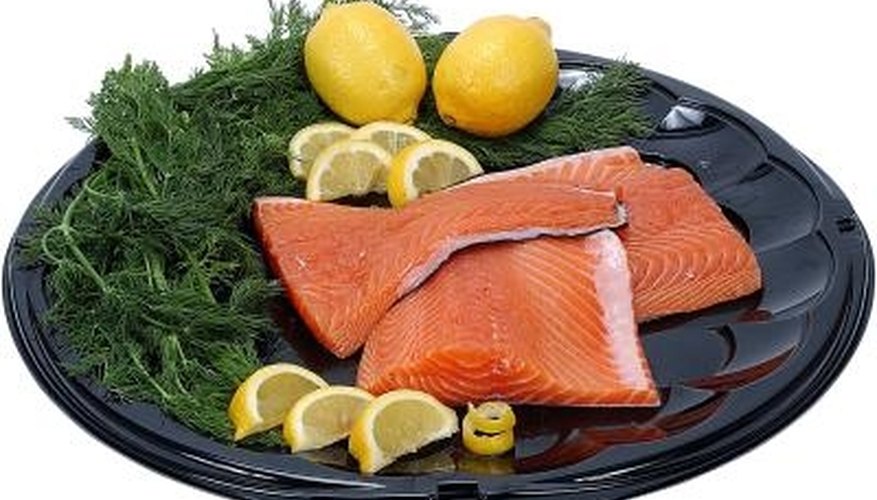
According to nutritional experts, fish is a healthy food that should be consumed weekly; one to three servings per week is recommended. The problem arises at the grocery store when shopping for fish to eat. There are literally hundreds of different types of fish that can be caught or purchased and consumed. Whether a fish is a cold water fish or a warm water fish makes a difference in how healthy it is for the human body.
Fat Levels
Cold water fish have a much higher level of fat in them than warm water fish. The fat levels allow the cold water fish to stay warm in cold water. Although fat does not seem like a good thing to eat, the fat found in most cold water fish is a healthy type of fat. The human body needs omega fatty acids, which are found in cold water fish.
Mercury Dangers
One danger of consuming fish is ingesting high levels of mercury, which is toxic to the body in large quantities. Cold water fish often contain higher levels of mercury due to their higher fat levels. Mercury is stored in the fat of the fish which is why consuming too much cold water fish can potentially lead to mercury poisoning.
Size
Cold water fish are traditionally much larger than warm water fish. Due to the need to survive in a cold environment, cold water fish eat more and store more fat to grow larger. For example, salmon, which is found canned and frozen on most grocery store shelves, is a cold water fish that can grow to weigh as much as 120 pounds.
Habitats
Warm water fish are found in rivers, streams, lakes and the ocean. Cold water fish are most frequently found in the oceans. Because bodies of water over land, such as rivers and streams, are shallow in comparison to oceans, the water is often much warmer and therefore consists of warm water fish. Cold water fish are also found in lakes and rivers but usually in very cold environments and are not found in shallow waters as frequently as warm water fish.
References
Writer Bio
Racquel Ricci began writing in 1999, and has since worked as a grant writer for non-profit organizations and public school systems. She runs competetively and writes often about exercise and fitness. Ricci has a Bachelor of Arts degree from the University of New Mexico in psychology.



